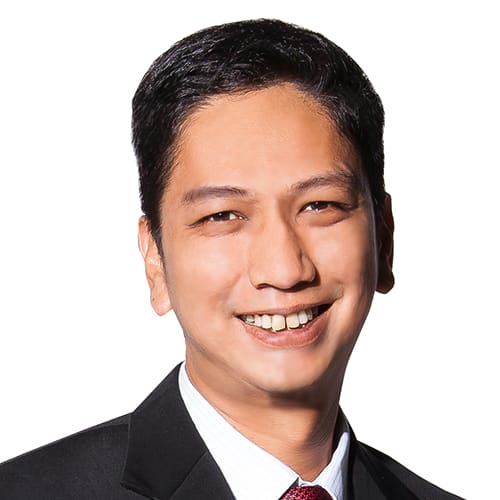analysis Asia
Foreigners now allowed to lead Indonesia’s state firms, but ‘core issue isn’t the passport’
The move could boost investor confidence but problems such as inefficiency and political interference must be tackled, say experts.
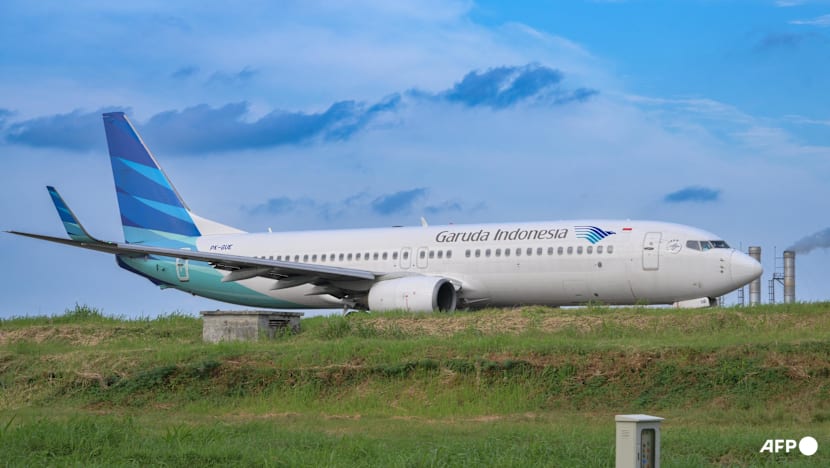

This audio is generated by an AI tool.
JAKARTA: Indonesia’s move to allow foreigners to fill top positions in state-owned enterprises (SOEs) could boost investor confidence and the adoption of international best practices, but it still needs to tackle longstanding issues such as bureaucratic inefficiency and political interference, experts said.
President Prabowo Subianto announced last week that expatriates could now lead Indonesian SOEs for the first time in the country’s modern history.
“I have changed the regulations. Expatriates and non-Indonesians can now lead our SOEs,” he said on Oct 15 at the Forbes Global CEO Conference in Jakarta.
The president was referring to amendments to Indonesia’s SOE Law, officially passed by parliament on Oct 2.
On the same day, Rosan Roeslani, chief executive officer of Indonesia’s sovereign wealth fund Danantara, announced that airline Garuda Indonesia had appointed two foreigners to its top management.
Balagopal Kunduvara, who spent more than 25 years at Singapore Airlines, was named Garuda’s chief financial officer, while seasoned aviation executive Neil Raymond Mills was appointed director of transformation.
Rosan said the airline - which has been operating at a loss for the past three years - needed professionals of Kunduvara and Mills’ calibre to restore profitability.
“We have long been trying to recover Garuda, but we haven’t had the best results. What’s most important is to have someone who not only has great plans but can execute them quickly,” Rosan said at a press conference, as quoted by The Jakarta Globe.
The Danantara chief did not disclose the nationalities of the two new executives.
Garuda’s website lists Kunduvara as being born in India and Mills in South Africa, but did not state their nationalities.
CNA has reached out to the airline for comment.
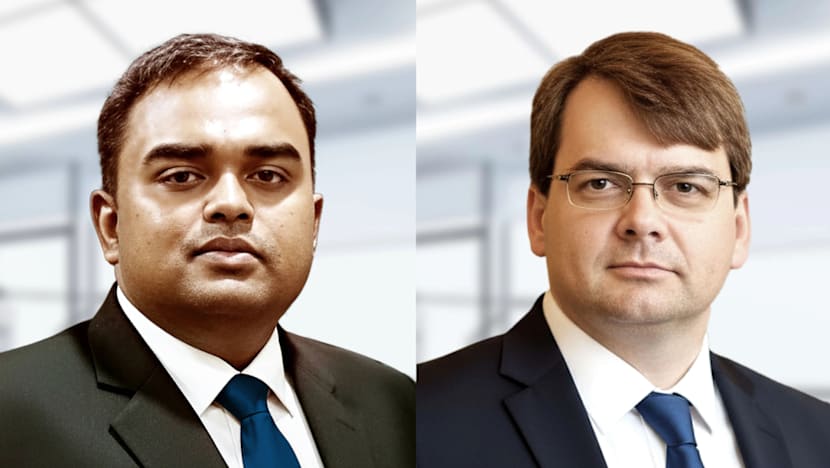
FOREIGNERS BARRED FROM LEADING STATE FIRMS SINCE 1960
Indonesia has not allowed foreigners to hold C-suite and director positions at SOEs since 1960, when it first passed a law to regulate the country’s state-owned companies.
Efforts to lift the restriction date back to at least 2017, but previous attempts were repeatedly blocked by opposition lawmakers who viewed the hiring of foreigners as a potential threat to national interests.
Prabowo has made reforming Indonesia’s sprawling SOEs one of his top priorities. With the majority of lawmakers under his big-tent governing coalition, he has amended the SOE law twice in his first year as president.
The first amendment, passed in February, paved the way for the creation of Danantara, Indonesia’s second sovereign wealth fund, which would later assume control of more than 1,000 state-owned firms and their subsidiaries.
The second amendment, passed this month, downgraded the Ministry of State-Owned Enterprises to a regulatory body known as the SOE Management Agency (BP BUMN).
Although Article 15 of the new law still requires nominees for director positions to be “Indonesian citizens,” BP BUMN now has the authority to override this requirement when deemed necessary.
The president also said at the Forbes Conference that he wants the number of SOEs and their subsidiaries, which Danantara reported to be more than 1,000, to be slashed to a “more rational figure” of between 230 and 240 companies.
Danantara officials have said that more than half of Indonesia’s SOEs are currently operating at a loss. The fund is therefore seeking to merge overlapping entities and liquidate those deemed beyond rescue.
However, based on media reports, there are several strategic SOEs like Garuda, state pharmaceutical company Indofarma and steel producer Krakatau Steel that Danantara is determined to save, even if doing so requires a major overhaul.
CORE ISSUE “ISN’T THE PASSPORT”
Observers say allowing foreigners to lead Indonesia’s SOEs could inject international best practices in management, transparency, and innovation into the firms - many of which have been mired in debt, inefficiency and corruption scandals.
It could also boost investor confidence in publicly-traded SOEs, they said.
“The presence of expatriates is expected to bring improvements in governance,” said Toto Pranoto, an economist from the University of Indonesia.
Tauhid Ahmad, a senior researcher at the Institute for Development of Economics and Finance (INDEF), said the removal of the decades-old ban was long overdue.
“If Indonesia wants to become a global player, it needs people with international experience. Those with such backgrounds can help accelerate progress more quickly,” he said.
Indonesia could benefit from recruiting expatriates with experience in transforming the state-owned enterprises of other countries, he added.
“By learning from the experiences of those countries, the pace of transformation can be much faster,” Tauhid said.
BP BUMN chief Dony Oskaria said the government will be selective in hiring foreigners for state firms.
“It depends on the needs. For certain sectors, we need to carry out transformations in how our SOEs are managed. So don’t focus on whether someone is an Indonesian or a foreign national,” Dony told reporters on Oct 20, as quoted by news portal Detik.
State Secretary Prasetyo Hadi also suggested the Garuda appointments may not be the last.
“We also need many talents in the mineral and oil industries. If we feel that we require the skills and competencies of someone who happens to be a foreign national, why not?” Prasetyo said on Oct 17, as quoted by Tempo.
Garuda Indonesia is an appropriate starting point for the new policy, experts said.
Despite having the potential to become a leading regional carrier, Indonesia’s flag carrier has long struggled with financial difficulties that have necessitated repeated government bailouts.
Danantara, which has a 64.5 per cent stake in Garuda, recently pledged to inject a total of US$1.8 billion into Garuda after the airline reported a US$142.8 million loss in the first half of 2025. Garuda also disclosed a US$737 million debt load - exceeding its total assets of US$581 million.
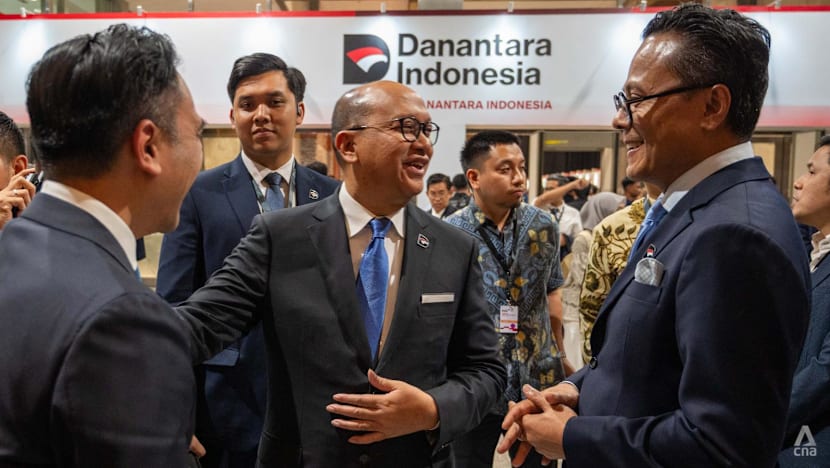
“I think Garuda is a good example of a state-owned enterprise that could benefit from having expatriates,” said Toto Pranoto of the University of Indonesia.
“The airline serves both domestic and international routes and must compete with other global and regional carriers. Garuda also operates in an environment heavily influenced by exchange rates and other financial pressures — so their expertise could prove crucial.”
The talent pool for Indonesia’s aviation sector is also limited, with only two major airline groups, Garuda and Lion Air, dominating the market.
Toto expressed confidence that the two new foreign executives would push for reforms at Garuda. “They certainly would not want to risk their professional reputations,” he said.
Others, however, are less certain.
At the same extraordinary stakeholders’ meeting on Oct 15, Danantara and other shareholders also appointed Garuda’s new chief executive officer: Glenny Kairupan, a 76-year-old former army general and member of Prabowo’s Gerindra party. He replaced Wamildan Tsani Panjaitan, a former Air Force captain who served as Garuda CEO for just under a year. No reason was given for the change.
“Political and vested interests remain strong at the very top level,” said Bhima Yudhistira, executive director of the Center of Economics and Law Studies (CELIOS).
As a result, directors could end up performing administrative rather than strategic roles, and their attempts at institutional reforms could be blocked by political interests, he said. “That’s why I see the appointment of expatriates as largely window dressing.”
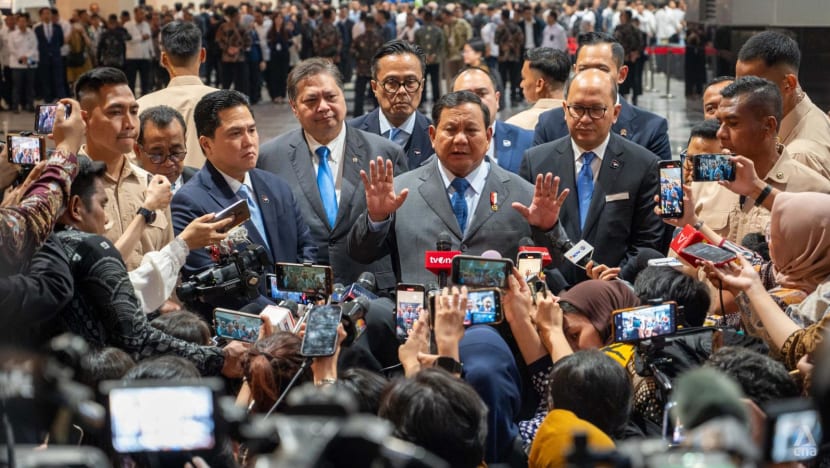
Agreeing, economist Achmad Nur Hidayat of the Jakarta National Development University said hiring experienced foreigners may not resolve structural problems like political interference, overlapping mandates and bureaucratic inefficiency.
“I believe the core issue isn’t the passport (of an SOE director), but governance, organisational culture, and incentives,” said Achmad.
“The government should focus on fundamental reforms: Improving incentives, fostering competition, and strengthening governance,” he said.
“Social mandates must be properly compensated, executive pay tied to results, regulations designed to encourage innovation and audits strengthened.”
Meanwhile, Wana Alamsyah of the non-for-profit Indonesia Corruption Watch said legal challenges could arise in corruption cases involving foreign SOE executives.
Cooperation with other countries is needed to prosecute foreign nationals, trace the assets stashed overseas and provide evidence for trials in Indonesia, he said.
Spokesman for the Indonesian Attorney General's Office, Anang Supriatna, however said no one would be above the law.
"As long as the crime is conducted within Indonesia's jurisdiction, our law applies. Meaning, anyone can be prosecuted," Anang said on Oct 17, as quoted by Tempo.
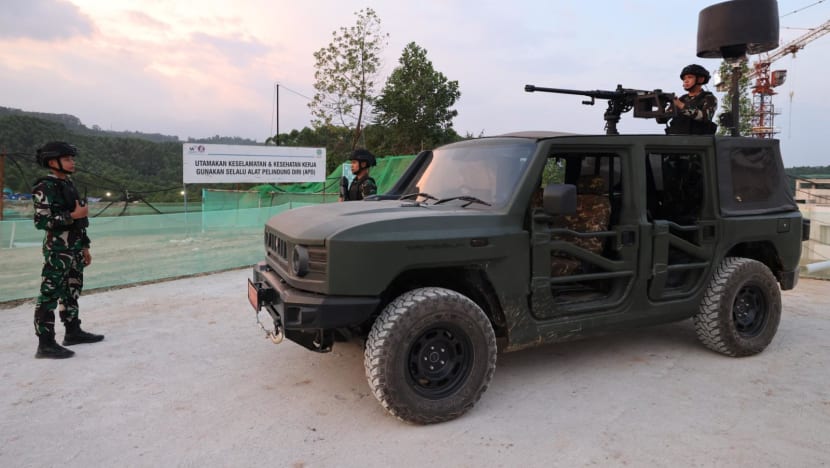
SHOULD THERE BE EXCEPTIONS?
SOEs should also be careful how they take in top foreign executives, experts cautioned.
The policy should not be applied across the board and should be limited to SOEs that are viable, and in sectors where Indonesia lacks specialised expertise, they said.
“Garuda needs people with experience in the international aviation market, and there aren’t that many qualified talents at home. But for SOEs in sectors such as finance, telecommunications and mining, it is important to prioritise local talents,” said Tauhid of INDEF.
Agreeing that Danantara should streamline Indonesia’s SOEs, Tauhid said: “We are paying expatriates a lot of money, so they should only be hired for companies that still have the potential to perform well. Those that cannot be saved should be merged, closed, or sold to the private sector.”
The hiring of foreigners for top management positions should also be avoided in certain cases, said Toto of the University of Indonesia.
Some strategic SOEs such as munitions manufacturer Pindad handle sensitive state and trade secrets, and Toto said they should remain under local leadership.
The same applies, he added, to public service enterprises like train operator Kereta Api Indonesia, where social obligations often take precedence over profit.
All stakeholders must be transparent about hiring decisions, he said.
“Danantara, BP BUMN, and the SOEs themselves must be open to the public about who these people are, why they are being hired and how they stack up against other candidates,” Toto said.
“Such transparency should apply equally to Indonesian and non-Indonesian executives, to dispel suspicions of political interference or conflicts of interest.”
The government could also introduce more detailed regulations to ensure “we hire the best talent for our SOEs while keeping our national interests protected”, said Toto.








